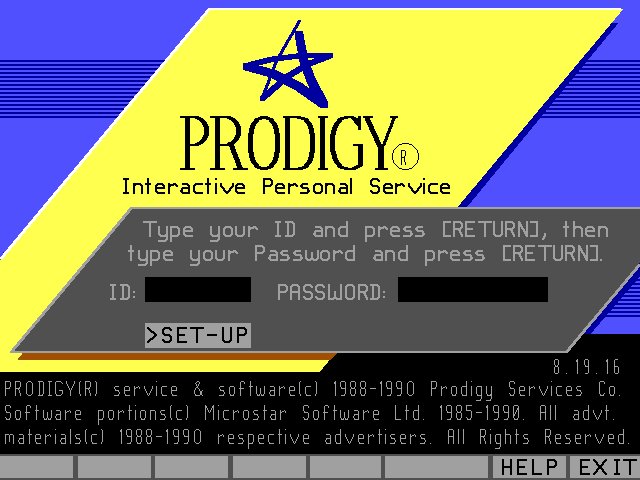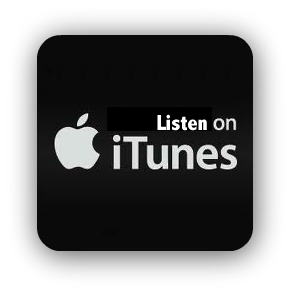Summary:
We take a step back to look at the early online services: CompuServe, Delphi, GEine, the WELL and especially, early AOL. Why? Well, because online services very much served as “training wheels” for the Internet. Online services were NOT the Internet, exactly; at least not at first. But they very much helped get people used to living life in an online environment. AOL especially would grow and enjoy success to the point that it became one of the most powerful companies in technology. We take a look at how America Online grew to dominate the online services market before the inevitable showdown with (who else?) Microsoft.
Listen:
Bibliography:
- Banks, Michael; On the Way to the Web: The Secret History of the Internet and Its Founders
- http://www.zdnet.com/blog/btl/happy-30th-birthday-compuserve/24853
- Stryker, Cole; Epic Win for Anonymous: How 4chan?s Army Conquered the Web
- http://www.wired.com/wired/archive/1.06/prodigy.html?pg=2&topic=&topic_set=
- http://www.nytimes.com/1993/11/08/business/at-age-9-prodigy-on-line-reboots.html?pagewanted=all&src=pm
- http://www.businessweek.com/stories/1995-02-12/prodigy-is-in-that-awkward-stage
- http://www.wired.com/wired/archive/3.09/aol.html?pg=4&topic=
- http://www.quora.com/AOL-History/How-much-did-it-cost-AOL-to-distribute-all-those-CDs-back-in-the-1990s
- Swisher, Kara; AOL.com













[…] since the chapters on AOL I posted last month, I’ve gotten a small but steady stream of emails asking what ever […]
This is a comment about both part 1 and 2, that is, I feel like you did not give enough lip justice to services like netcom and other internet services and how it played a perhaps a more significant role in the history of the internet. See, what happened around this time, was that AOL and traditional walled garden services were entrenched in this $10/month for 5 hour policy.
Many of these “pure internet” services at first still had hourly structures. What set netcom and others apart, was that it had a set of applications specifically built for the internet. Many people found IRC, news groups, telnet, gopher, ftp for the first time by using netcom or related service. While this was never as mainstream as AOL, the early adopters were by all accounts, the “power users” of the time. It was the first time I found IRC, which I thought to be better than AOLs chat once I found it. It was the first time I experienced a unix shell, the first time I went onto ftp servers, the first I built a IRC bot, the first I commented on a news group. While AOL might of had 100% internet capability, around the same time in 1994-95, the hours you had to do things, without incurring huge charges was very limited. So most people did not venture outside the walled garden, or were even aware of things like IRC and news groups. In fact, if you ask most people our age, they will remember AOL chat, but chances are they will not remember, or even know what newsgroups or IRC is.
But, the underlining reason why I think you should give these services a little more lip service, is that it was the early adopters of the internet that ultimately developed the internet into what it was today. It was these early adopters that really saw the future with eyes of amazement after first setting foot on the “real internet”. Its legacy still remains in many ways, where many software projects continue to have IRC support. Developers continue to use telnet/ssh, developers continue to use FTP. It’s those core tools that made the internet what it is today.
Excellent point. I mean, excellent. Can I tell you why I haven’t delved more into this (and I want to)? I simply haven’t gotten those interviews yet. I’ve reached out to people at both netcom and PSINet and for whatever reason, I haven’t been able to make the interviews happen. So, this is all to say, this is very much an area I am interested in and you have provided me a useful reminder to double back and double down on trying to research and surface these stories. My methods are neither linear, nor organized. 🙂 PS, enjoy your handle, YOUWILLNEVERKNOW…
Also, if you are one of these early ISP people, why not come on the show?
Not sure I would be a great interviewee, for the time unless you want feedback specifically from users of it. I played 0 role in the early days of the internet besides being a user, and dabbling in IRC bots a little back then.
I was just a user of many of the early services you spoke about in your podcast when I was a teen, so I remember them pretty well. That said, most memorable thing for me being on the “real internet” that was different from AOL and other services of the time was IRC, shell accounts, and pre-google link sharing. Since you had enough “free hours” as part of their monthly plan, you could actually do more than just email, you actually got to know people. https://en.wikipedia.org/wiki/Eggdrop
I first saw “Compuserve” at my mother in laws condo in w.p.b. florida. One day I managed to get into the “bowels” of C.S. and “WOW”! I could not believe some of the Porn I was seeing! It boggled my mind as it were. I kept glancing over my shoulder to make sure no one else was watching. The porn lasted longer than I thought it would; it seemed like it was in tact for a couple years till things got shut down and the really raunchy stuff was “history”. …… p.s. I still have Compuserve by the way. (Hard to break some habits,…..for sure). …..oh those fond memories, db
[…] law from that period. Think back to the early days of the interactive Web. Online services, like Prodigy and CompuServe were the first large-scale attempts to bring an interactive “social” online experience to the […]
[…] by 1995, AOL, Prodigy and CompuServe all had released the service. Email completely transformed the Internet from a digital repository to a portal of instant human […]
[…] by 1995, AOL, Prodigy and CompuServe all had released the service. Email completely transformed the Internet from a digital repository to a portal of instant human […]
[…] by 1995, AOL, Prodigy and CompuServe all had released the service. Email completely transformed the Internet from a digital repository to a portal of instant human […]
[…] by 1995, AOL, Prodigy and CompuServe all had released the service. Email completely transformed the Internet from a digital repository to a portal of instant human […]
[…] by 1995, AOL, Prodigy and CompuServe all had released the service. Email completely transformed the Internet from a digital repository to a portal of instant human […]
[…] by 1995, AOL, Prodigy and CompuServe all had released the service. Email completely transformed the Internet from a digital repository to a portal of instant human […]
[…] by 1995, AOL, Prodigy and CompuServe all had released the service. Email completely transformed the Internet from a digital repository to a portal of instant human […]
[…] by 1995, AOL, Prodigy and CompuServe all had released the service. Email completely transformed the Internet from a digital repository to a portal of instant human […]
[…] by 1995, AOL, Prodigy and CompuServe all had released the service. Email completely transformed the Internet from a digital repository to a portal of instant human […]